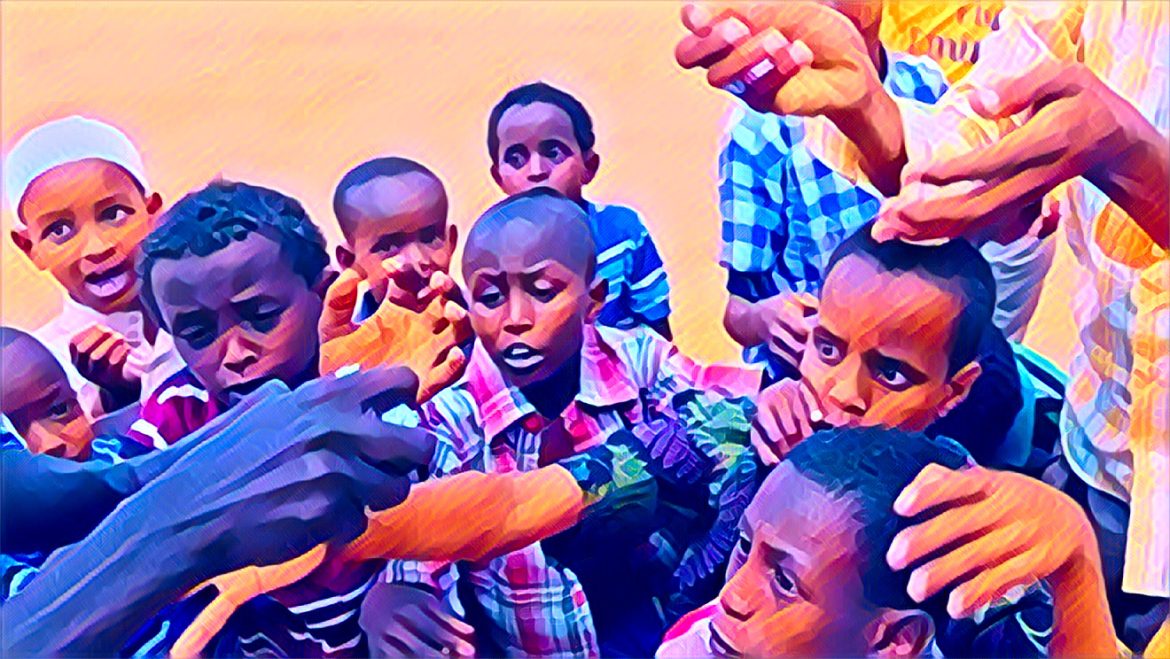As Zimbabwe struggles with a severe food shortage exacerbated by the El Nino-induced drought, a concerning rise in human rights abuses linked to the distribution of food aid has been reported. The Zimbabwe Peace Project (ZPP), in its latest monthly report, highlights an alarming surge in conflicts, predominantly involving the ruling Zanu PF party, which stands accused of using food aid as a political tool to coerce and intimidate citizens.
The country’s agriculture has suffered significantly due to erratic rainfall during the 2023/24 season, prompting President Emmerson Mnangagwa to declare the drought a national disaster. In response, the government, in collaboration with the World Food Programme (WFP), initiated a food deficit mitigation program to support vulnerable communities during the peak hunger months of January to March 2024. Despite these efforts, the actual distribution of aid has become a hotbed of contention and manipulation.
Christopher Mutsvangwa, the national spokesperson for the ruling Zanu PF party, affirmed that party officials are overseeing the food distribution process across Zimbabwe. This involvement has raised concerns about the impartiality and fairness of the distribution, as allegations of partisan handouts threaten to undermine the integrity of the aid program.
The ZPP’s report for March detailed a total of 167 human rights violations across the country, with 108 instances of intimidation and harassment directly linked to the distribution of food aid. Among these, 12 cases were explicitly tied to food aid abuses. A particularly stark example was cited involving Sithembiso Nyoni, a high-ranking Zanu PF official and Member of Parliament for Nkayi North, who reportedly warned citizens that failing to support the ruling party could result in being excluded from receiving food aid.
Nyoni, who also serves as the Environment, Climate, and Wildlife Minister and a member of the Zanu PF politburo, exemplifies the alleged politicization of food aid. Her comments during a distribution event underscore the concerns many have about the use of state resources to exert political pressure on the populace.
In the face of these accusations, Zanu PF’s director of communications, Farai Marapira, defended the party’s actions, dismissing the report as baseless and insisting that the party remains committed to democratic principles. Similarly, Simon Masanga, secretary of the Public Service, Labour and Social Welfare ministry, denied any partisan distribution, claiming that aid is being delivered impartially to all Zimbabweans regardless of political affiliation.
Despite these official denials, the ZPP report presents numerous instances where individuals perceived as opposition supporters were allegedly denied access to food aid. In one case in Nyanga North, teachers from three secondary schools were reportedly told by a traditional leader that they would not receive aid because of their political leanings.
The issue extends beyond mere distribution. In Masvingo, a village head allegedly threatened to remove community members from the food aid beneficiary list if they supported the Nelson Chamisa-linked Blue Movement. This act was seen as a direct violation of political rights and the freedom of assembly and association.
Further abuses were recorded in the Midlands province, where a member of the Forever Associates Zimbabwe reportedly threatened villagers with violence and starvation for opposing President Mnangagwa’s rule during a social welfare meeting.
These incidents have prompted the ZPP to call for a thorough investigation by the Parliament and the Zimbabwe Human Rights Commission into these abuses. It also recommends that food aid distribution be managed strictly through official government channels and that all personnel involved in the relief efforts conduct themselves professionally to avoid further abuses.
The continued politicization of food aid in Zimbabwe not only undermines the efforts to combat the food crisis but also perpetuates a cycle of abuse and coercion. The government and international partners need to ensure that aid reaches those in need without being siphoned off for political gain. Ensuring accountability and transparency in these processes is crucial to restoring trust among the populace and effectively addressing the humanitarian needs of the country.
Source: Newsday


